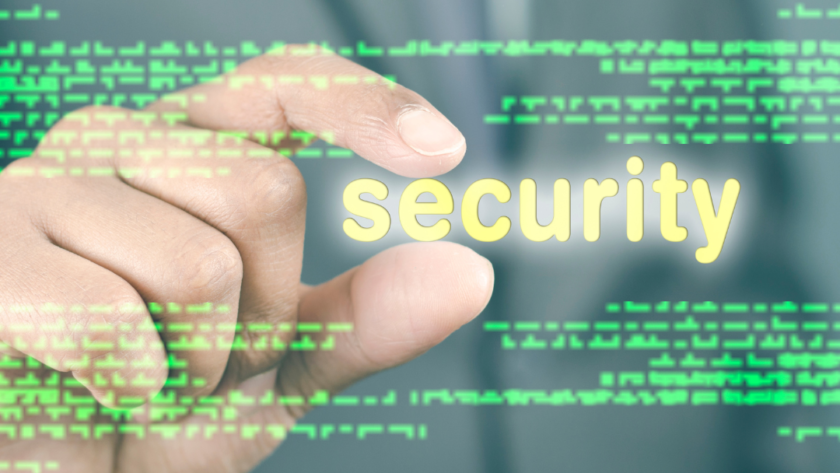We live in a digital world where everything is connected one way or the other. We complete the majority of our routine tasks with the help of our cell phones. We make payments, transfer funds, and shop online. However, with this growing dependency on the smartphones and internet, there is a risk involved; we are not safe online.
Hackers have figured out ways to breach our security and access our private information. Surely, no one wants to comprise their private information and data. This imparts a great threat to our safety and well-being. Therefore, online safety has become a part of our daily conversation. Having a safe online presence is nothing short of a relief.
Moreover, hackers find out different loopholes in our systems and hit where we are the most vulnerable. Henceforth, we should do whatever it takes to stay safe online. After all, if you’d look at a stun gun buying guide and then purchase one to keep yourself safe in real life, why not put the same effort into staying safe online?
All the tech giants like Facebook and Google spend billions on building firewalls and keeping their networks secure. Even after billions of investments, hackers still figure out a way to breach their networks. If these tech giants after spending billions aren’t safe, how can we assume we are?
Many broadband internet providers are making internet safety an utmost priority. For example, Spectrum Internet® offers free antivirus software with all of its internet packages.
We came up with a comprehensive guide for online safety. Follow these simple tips for a secure online presence:
Get a VPN
VPN stands for a virtual private network. It is important for online safety especially when you are connected to an unknown Wi-Fi network. For example, when you go to a coffee shop and connect to that free public Wi-Fi. These networks are dangerous. You don’t know anything about their security. There might be a case when someone else is controlling that network without you even knowing. Hackers may steal your private information and data. Here comes the role of a VPN. It encrypts your network traffic and routes it through a server that is owned by a VPN company. This adds an extra layer of protection and nobody can snoop on your data.
Secondly, using a VPN hides your IP address. If someone is tracking your IP address, they will not be able to do so as they will see a different IP address. You can also access the content not available in your region by using a VPN.
Get an Antivirus software
We take our online safety for granted. The first step in ensuring a safe online presence is installing antivirus software. These programs are designed to protect you against all the different kinds of malicious software. This malware encrypts your important files and demands payment to restore them. Moreover, Trojan horses enter your system without you even knowing. They look like valid programs but they steal your private information behind your back. Therefore, antivirus software protects you against all sorts of malware, Trojan horses, and viruses that can damage your data and security.
Even after installing an antivirus program, people forget it and keep it running in the background. However, you should explore it now and then.
Make sure to use Two-Step Authentication
Although most of us dislike the idea of two-factor authentication, it makes your account more secure. This means that in addition to your username and password, you need to pass another layer of protection. If you have sensitive information and data in your account, just go into the settings and enable two-step authentication.
Many online services have started to enable this two-factor authentication to make accounts more secure. This simple setting verifies your identity two times. You can tweak the setting according to your ease. Just keep the username and password for the first step and set something convenient for the second. For example, your fingerprint, facial recognition, or even iris scan. If not, then you can use the verification through your mobile phone. Right after entering your username and email, a code is sent via email or text to your phone.
Avoid click baits and unknown websites
Hackers use Click baits in the form of ads to trap you. This is the most commonly used method. You may click something on accident but might end up losing useful information. Therefore, avoid opening unknown websites and try to avoid click baits as much as you can. Even if you need to open an unknown website, enable your VPN first.
Use unique passwords
There is a science behind keeping a secure password. You just cannot keep all numbers or your birthdate. Things like these are very easy to predict. Therefore, your password must be a mixture of uppercase and lowercase letters. It must have one or two numbers and should be unique.
Clear Cache
Your browser’s cache knows a lot about you. Saved searches, web history, and cookies can easily reveal your personal information, location, and other personal data.
To protect that information, clear your browser history and cache regularly. Delete cookies when you have the time. You might face some inconvenience and lose any personalization that you applied but it is better to be safe.
Never Save your password
All browsers have a password management solution. Always turn off auto-save for all your passwords and logins.
Pay with your Smartphone
The system of paying through your credit card is outdated and not secure. You can do something about it. Instead of entering your credit card number and other details, switch to other online payment solutions such as Apple Pay or any other platform.
Summing Up
You have to be vigilant when you use the internet because there are many potential hackers online that can cause damage to your personal data. Following the simple steps described above can ensure your online safety and prevent any potential harm from hackers.

